Metropolitan Area Gdańsk-Gdynia-Sopot is working on analyses aimed at examining the possibilities of using LNG and bio-LNG: as a backup source of energy supplying trolleybus station power network (for the needs of the Trolleybus Transport Company in Gdynia), as an ecological fuel for water trams (for the needs of Gdańsk Shipping Ltd) and as a source of using waste for fuel production (for the needs of Waste Treatment Utility in Gdańsk). MAGGS experts have selected the study directions for each of these institutions.
The first proposal for Przedsiębiorstwo Komunikacji Trolejbusowej (Trolleybus Transport Company) in Gdynia is to use a unit powered by bio-LNG fuel as an additional source of power. The second proposal is to use a generator powered by bioLNG fuel to power a separate network or a backup network. This solution is possible with the continuous supply of bio-LNG to the feed station.
– With the current increase in electricity prices, the use of bio-LNG fuel to power the overhead contact line may bring economic benefits for the Company – says dr inż. Alicja Lenarczyk, MAGGS expert, – Powering the traction network using bio-LNG cogeneration units has a positive environmental effect due to the lack of greenhouse gas emissions to the atmosphere during combustion. The use of bio-LNG fuel will not cause any inconvenience to the inhabitants, as the liquefaction process of bio-LNG removes the gas from oxygen, carbon dioxide, water and sulfur compounds, therefore it is considered a clean fuel.

Trolleybus Transport Company in Gdynia
For Zakład Utylizacyjny in Gdańsk (Waste Treatment Utility) the experts proposed the construction of an LNG station to power the car base, garbage trucks, loaders and excavators, and to supplement the current installation with a bio-LNG tank and regasification stations.
– Bio-LNG is an ecologically justified proposition to power engines compared to the previously used diesel drive, because it reduces greenhouse gas emissions – says dr inż. Alicja Lenarczyk. – Alternative use of the recovered gas in the form of bio-LNG fuel, without the need to dispose of surpluses, will bring economic benefits to Zakład Utylizacyjny. An additional effect will be the production of own fuel to power technical vehicles. Bio-LNG fuel is characterized by a high refueling speed and the ability of vehicles to achieve long ranges (1500-1600 km) on one refueling. Surpluses not used by Zakład Utylizacyjny may be resold on the market, which may turn out to be economically profitable, taking into account the increase in gas prices.
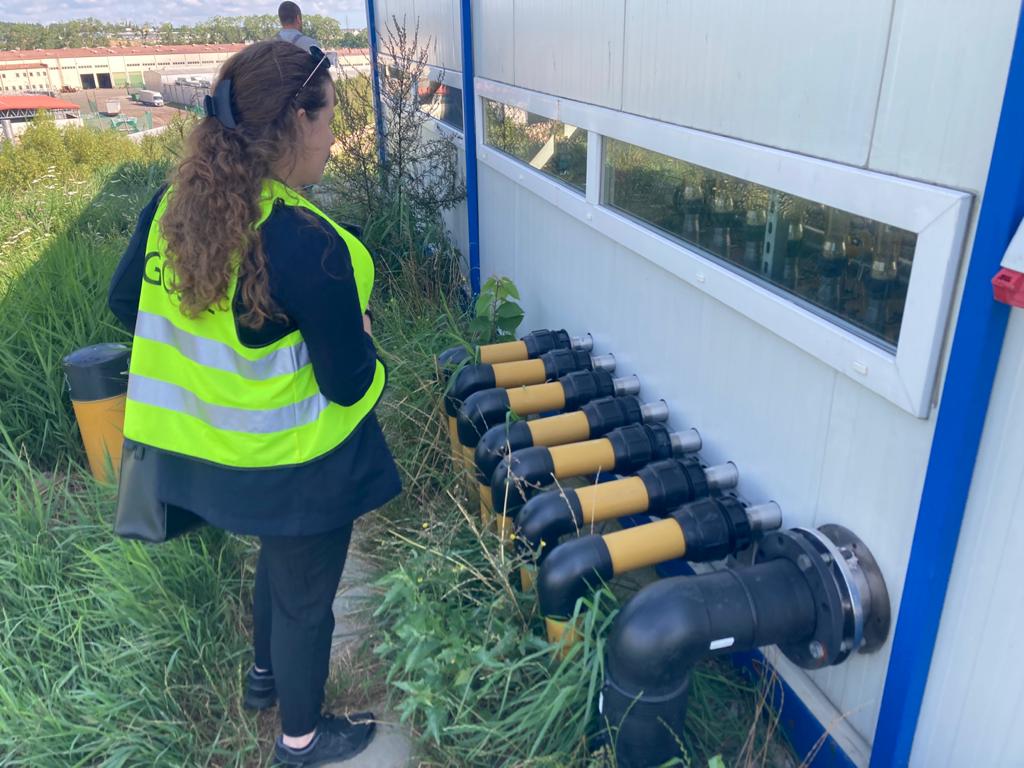
The visit to Waste Treatment Utility in Gdańsk © MAGGS
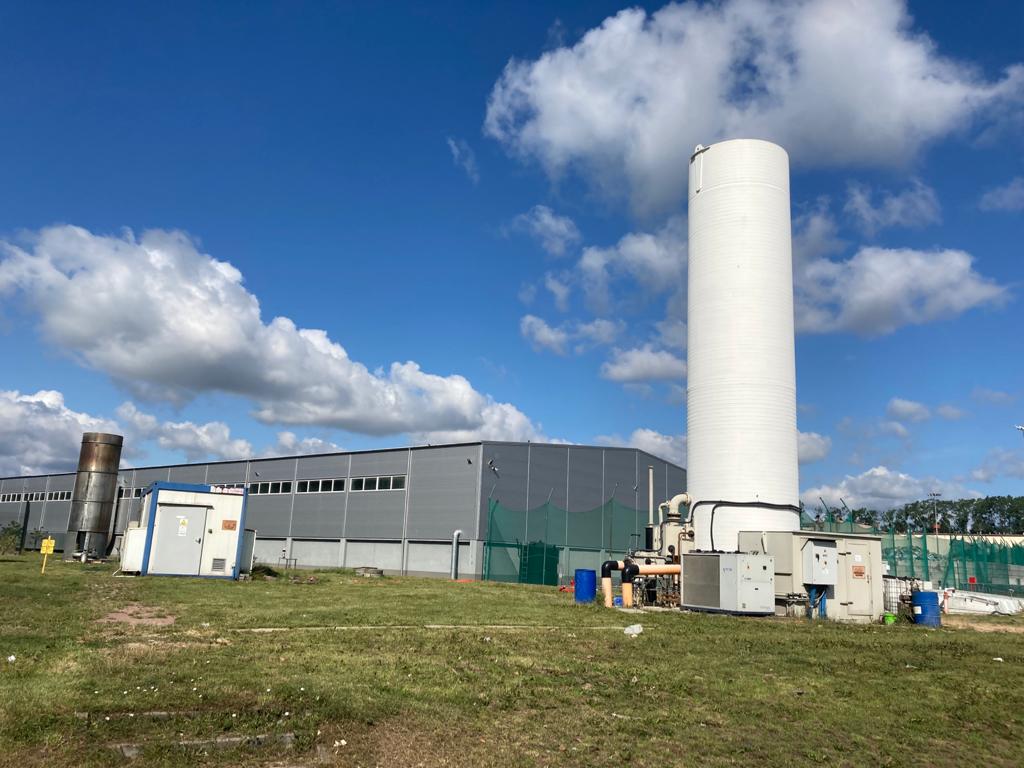
The visit to Waste Treatment Utility in Gdańsk © MAGGS
As a result of consultations with Żegluga Gdańska (Gdańsk Shipping Ltd), the Opal vessel was pre-selected from among the two proposed units in order to adapt it to the combustion of LNG / bio-LNG fuel. This is due to the fact that the machinery space will be able to accommodate the necessary elements of the new system. After modification, the upper deck of the “Opal” vessel provides ample space for the installation of a cryogenic vessel.
– Due to the experience of the Martime University of Szczecin, the general condition of the entire vessel should be taken into consideration – says mgr inż. Jakub Ziarnik, MAGGS expert. – First of all, the modernization has to maintain a ship’s commercial services ability, in addition – became a stimulator for development in future key-components of the Liquid Energy Project. It cannot become a single, overpriced curiosity. Modernization of the existing unit should be compared to introducing a brand new one. As an advantage of the second option, we receive a highly efficient vessel which fulfills all of the newest requirements and market needs.
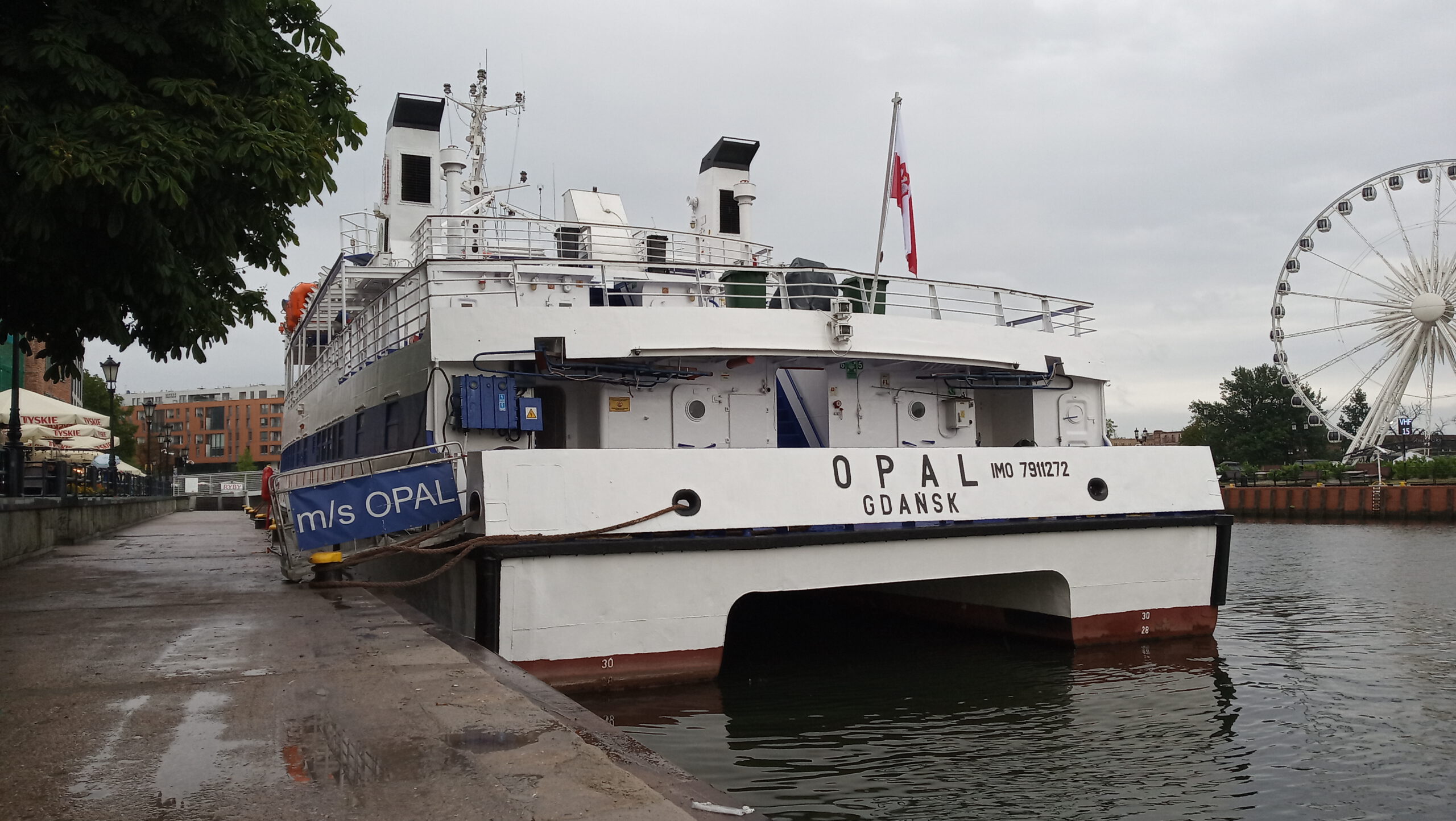
Surce: Żegluga Gdańska (Gdańsk Shipping Ltd)
In search of good practices and inspiration for the Liquid Energy project MAGGS representatives visited BISEK-LNG Sp. z o.o. in Kostomłoty specializing in the sale of LNG fuel. The company has a fleet of LNG-powered vehicles. It also implements innovative technologies in the use of this type of fuel.
The meeting was attended by mgr inż. Mariusz Sadłowski, MAGGS energy and environmental coordinator and dr inż. Alicja Lenarczyk, MAGGS expert responsible for developing a concept with elements of a feasibility study for Zakład Utylizacyjny (Waste Treatment Utility) in Gdańsk and Przedsiębiorstwo Komunikacji Trolejbusowej (Trolleybus Transport Company) in Gdynia. With the president and experts of BISEK-LNG, they discussed the possibilities and technical conditions for implementing the technology for the purposes of studies for the partners of the Liquid Energy project. At the meeting, the machinery park, LNG refueling stations and technologies used in the company were presented.
The meeting was announced by the partner of the Liquid Energy project, Polskie Górnictwo Naftowe i Gazownictwo (PGNiG Retail Branch).
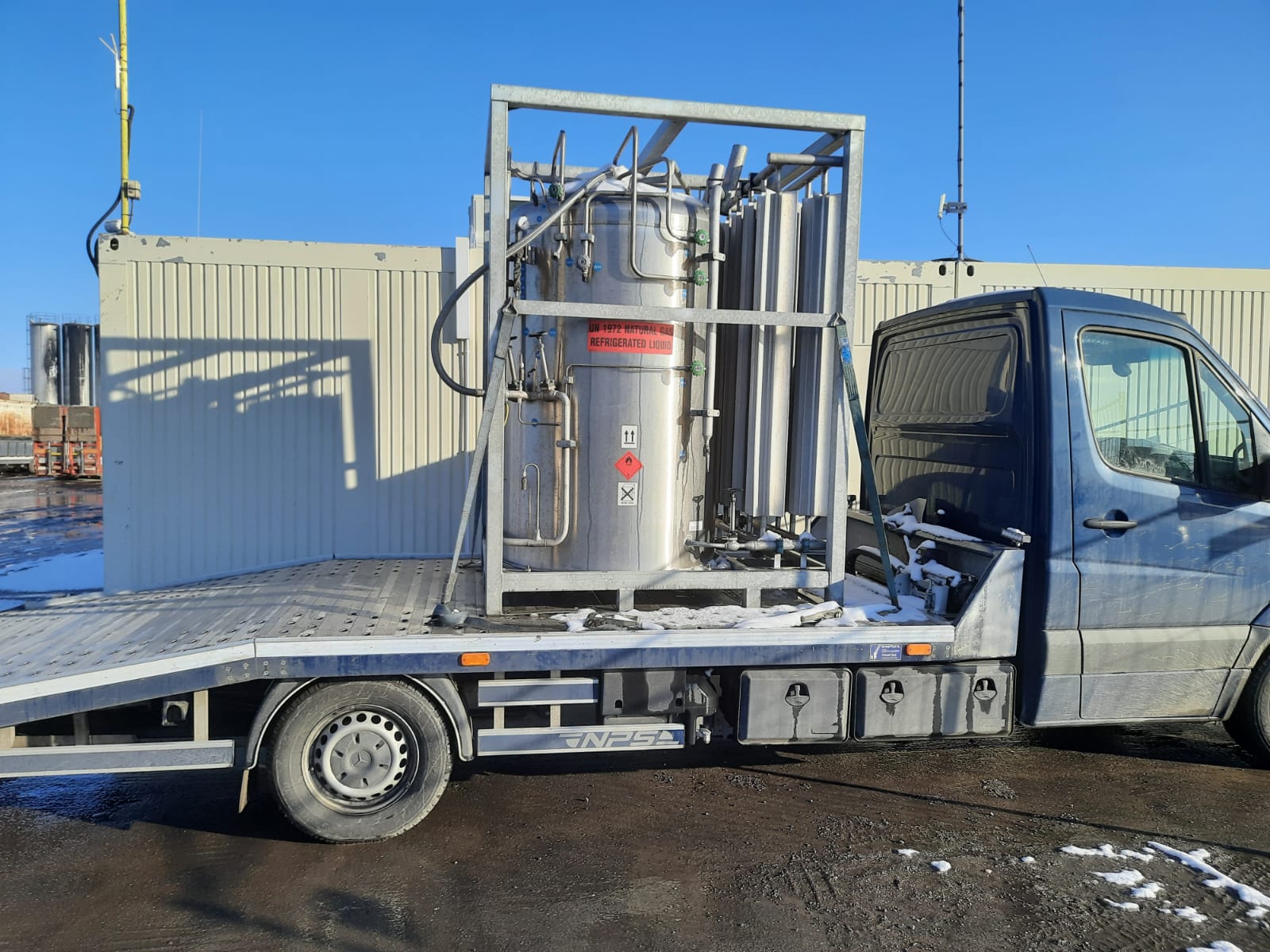
BISEK-LNG Sp. z o.o. specializes in the sale of LNG fuel © MAGGS
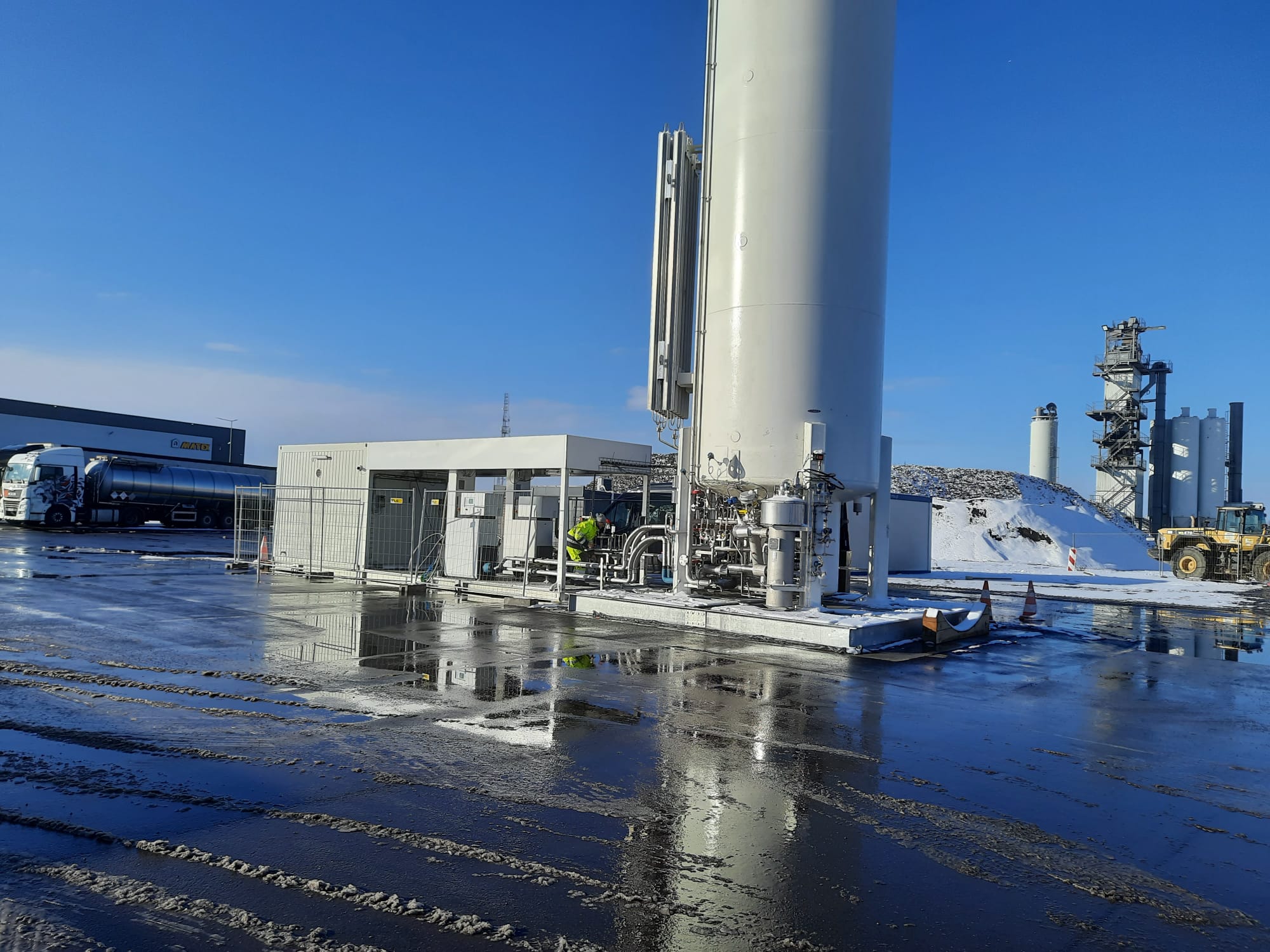
LNG refueling station at BISEK-LNG Sp. z o.o. in Kostomłoty © MAGGS

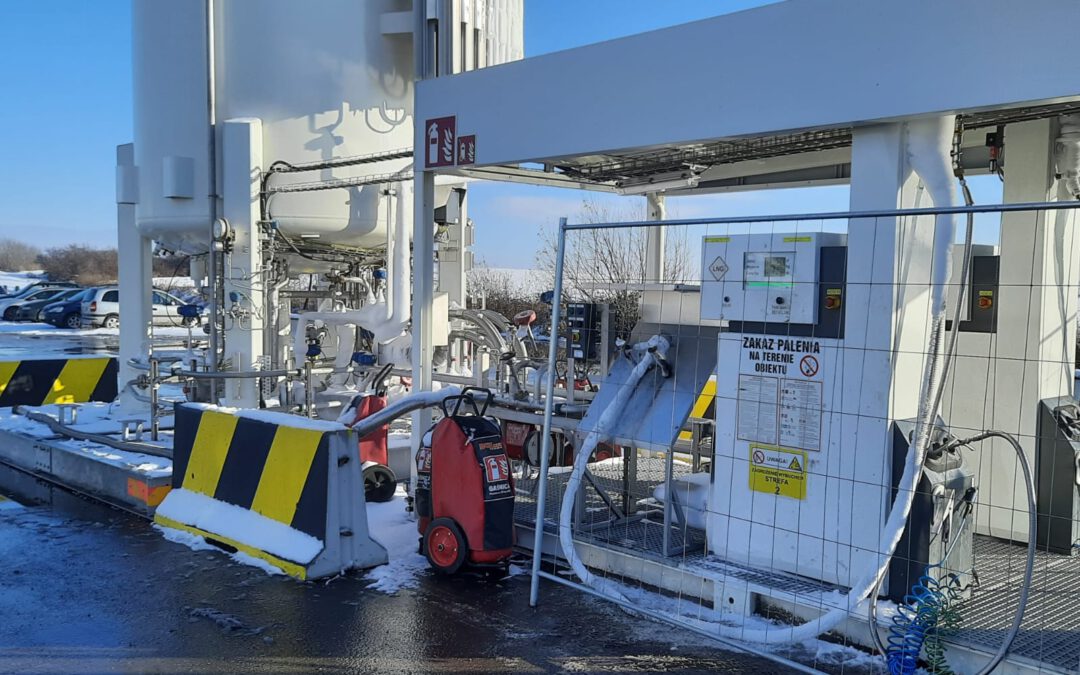

Recent Comments